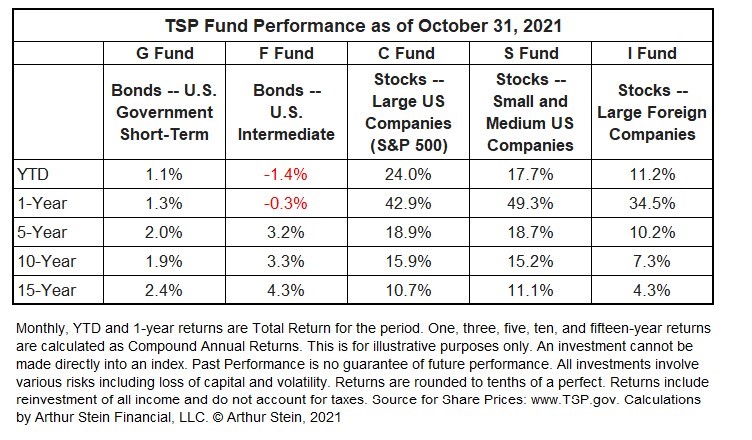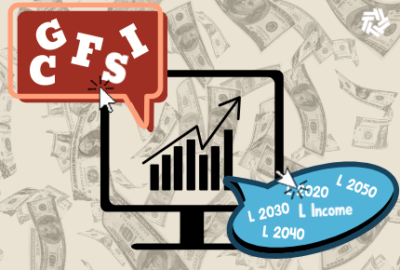C, S and I funds: How long can the boom last?
For many long-term investors — like folks in the Thrift Savings Plan — the question is simple. What, if anything, should I be doing with my portfolio?
Despite the life-altering impact of COVID-19, international tensions and unprecedented political divisions in the country, the stock market keeps on going up and up. The experts give us lots of after-the-fact explanations. But, how often are they right?
For many long-term investors — like folks in the Thrift Savings Plan — the question is simple. What, if anything, should I be doing with my portfolio? More stocks or sell high and seek the “safety” of the Treasury securities G fund while the going is good?
In some, maybe many cases, the answer to the what-should-I-do question is simple. Nothing. And certainly don’t act out of greed, fear, a feeling or what your favorite cable guru says.
The reality is that nobody knows the real answer. Not the wise guy in your carpool, not your tarot card reader and not even your financial planner. Nobody.
In most cases, the best answer or guidance depends on you situation. Your age, marital status, work/retirement timeline, current financial situations. And, very important, your risk tolerance. How did you behave during the Great Recession?
To help walk us through it, we’ve got a financial planner as our guest this morning at 10 a.m. on Your Turn. He was an economist with Congress and most of his clients are active or retired feds. Several are TSP millionaires. You can catch the show streaming here or on the radio at 1500 AM in the D.C.-Baltimore area. It will also be archived on our home page so you can listen later. Or refer it to a friend or coworker.
If you have questions for him, shoot them to me before showtime at mcausey@federalnewsnetwork.com.
To let you know what we’ll be talking about, he’s written this excellent outline:
Stock Funds Hit New Highs Despite Covid, Inflation, and Supply Chain Disruptions
The TSP U.S. stock funds (C and S) reached all-time highs in the last week of October, as stock investors seemed to focus on a resilient economic recovery, ongoing historic support from the Federal Reserve and strong corporate earnings. Year-to-date returns were excellent for all three of the stock funds.
F fund (intermediate-term US bonds) returns continue to be negative year-to-date and over the last twelve months. However, the F fund outperformed the G fund (short-term government bonds) over the last 5, 10 and 15 years.
A Frequent Question with No Answer
One of the most frequent questions I hear is how well the TSP funds will do in the future. I cannot answer that.
Stock market forecasts are not reliable, not by me or anyone else. An article by Barry Ritzholtz in the Washington Post, Would you let a mystic manage your investment portfolio?, contains many examples of failed stock market predictions. Ritzholz writes that the “data overwhelmingly show that the skill set of the predictive pundits is no better than a coin toss. The odd person gets these forecasts about the economy and stock markets right each year, but the lack of any sort of consistent winners and losers means that, mathematically, it is a random outcome.”
Old saying: Even a stopped clock tells the correct time twice a day.
So, what can an investor do? I suggest ignoring market forecasts. Instead, note that, historically, well diversified and well managed stock portfolios outperformed bonds and bank accounts over long periods of time. That means that the TSP stock funds are reasonable investments for money you need to withdraw more than ten years from now. Past performance is no guarantee of future performance but the historical record seems clear.
Nearly Useless Factoid
By Alazar Moges
Female bats gives birth while hanging upside down by their feet. The mother catches the baby in her wings as it is born.
Source: San Diego Zoo
Copyright © 2025 Federal News Network. All rights reserved. This website is not intended for users located within the European Economic Area.
Mike Causey is senior correspondent for Federal News Network and writes his daily Federal Report column on federal employees’ pay, benefits and retirement.
Follow @mcauseyWFED







